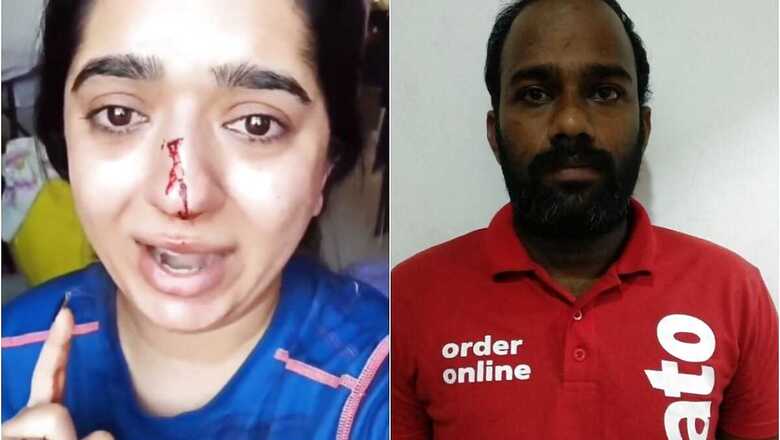
views
Zomato, the biggest food aggregator in India, has been in the spotlight after a recent incident involving one of its delivery executives and a customer in Bengaluru turned into a controversy.
The woman, Hitesha Chandranee, a makeup artist, put out an Instagram post on March 10 in which she alleged that the delivery executive had attacked her after a spat over arriving late. Chandranee was seen bleeding from the nose in the video post, which went viral. However, the delivery executive, Kamaraj, vehemently denied hitting Chandranee and claimed that she had used abusive language and, in fact, thrown a slipper at him.
Kamaraj claimed that he held his hands up in defence and that Chandranee resultantly hurt herself with her ring during the commotion.
While both filed FIRs against each other, Zomato put out a statement expressing regret over the incident and promised to cover for the medical expenses of the woman and the legal expenses of the delivery executive, who the company said was suspended until proven innocent.
While an investigation into the case by the police is still underway, News18 reached out to Tejaswini Divya Naik, an author from Mumbai, whose petition in 2016 brought about a change in the way Zomato delivery agents operate. The petition had gathered more than 30,000 supporters.
Naik claimed that she had been harassed on multiple occasions by delivery executives, with some making calls and messaging her after getting her telephone number from the food delivery app. Following a series of such incidents involving delivery executives across the country, it came to light that no background verification was being conducted before recruiting these agents.
So Naik took up the cause and urged people to sign a petition and asked Zomato to ensure that the delivery team is vetted.
“Zomato, implement background verification for all your delivery boys and recommend the same for the restaurants you work with to keep your women customers safe. These are your employees and representatives, and we would like to know that it’s safe for them to have our phone numbers and addresses. It is your responsibility to implement this and reassure all your customers,” Naik had said in her letter to Deepinder Goyal, Founder and CEO, Zomato.
Responding to the petition in January 2016, co-founder of Zomato Pankaj Chaddah, who no longer is part of the company, had said, “Safety of end consumers should be a collective responsibility of all involved parties and we should take it very seriously. Zomato does not employ our own fleet of delivery personnel, we just enable users to place their orders online at restaurants, and the restaurant employs delivery boys (or a third-party logistics firms deploys delivery boys), but we understand that this concern is a serious one. We are working with our logistics partners to ensure police verification is done for all food delivery personnel…”
Speaking to News 18 after the Bengaluru incident, Tejaswini said things have evolved and are much better now after her petition drove the change.
“After my petition was accepted, I have witnessed how the operations of Zomato delivery have evolved over the time period,” said Naik.
“Not only have the incidences of such crime reduced in these five years, safety precautions have also been adopted by Zomato to ensure that none of the customers’ personal details, for example our phone numbers, are disclosed to the delivery executive. Online payment methods have further ensured that there is reduced physical contact between the delivery agent and the customer to ensure their safety.”
“Overall, my experience with Zomato over these five years has been satisfactory,” said Naik.
To substantiate her claims, News18 reached out to many delivery agents of Zomato. It was found out that the majority of them were recruited on the basis of referrals and had to submit their KYC details, including PAN and Aadhaar cards prior to their appointment.
When asked about the training they had to undergo before being inducted, Srijan Guha, a Zomato executive working in Kolkata, said, “We had to undergo a video training as to how to behave with customers as part of our onboarding process.”
Guha, a father of two, said he did not have a fixed income. His monthly pay depended on the kilometres he traveled while making deliveries and the number of deliveries he made in a day.
“We try our best to deliver the food on time. This keeps the customer happy and also helps us take up more deliveries per day,” he said.
Regarding concerns around the safety checks, a Zomato spokesperson clarified that selection of delivery partners is focused on a potential candidate’s background (including checks for potential criminal background), in addition to validating their documents (PAN card, driving license). “These checks are conducted by an independent third-party and we have a zero-tolerance policy for any possible red/yellow flag in our background checks,” said the spokesperson.
Read all the Latest News, Breaking News and Coronavirus News here












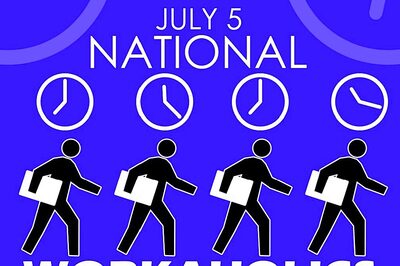

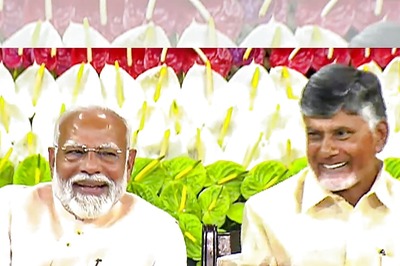
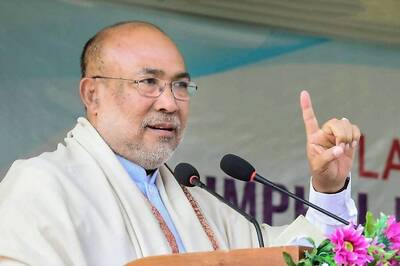


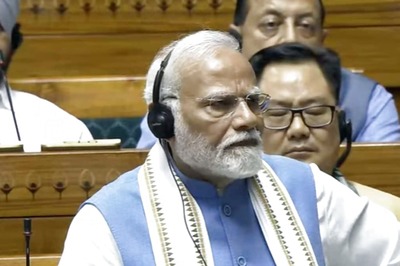

Comments
0 comment